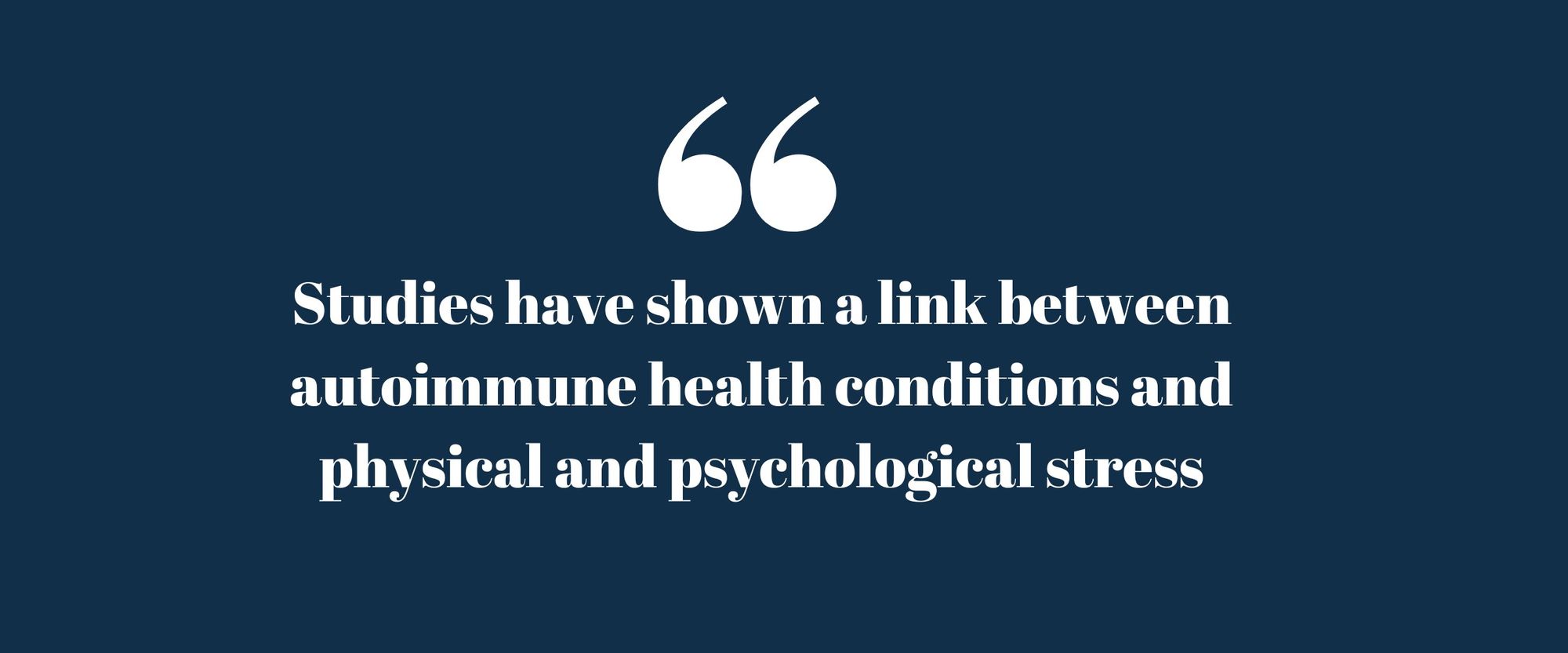Lessons from a nutritionist’s autoimmune journey
updated on Jun 13, 2023

Nutritional therapist Claudine Thornhill reveals her personal story of finding out she has an autoimmune condition, and how the experience shaped her future…
Most nutritional therapists and health practitioners have a story about what led them to pursue that particular career, usually involving their own health challenges. For me, it was a journey with autoimmunity.
I was 19 years old, doing a degree in Communications in London, and had begun noticing whiteheads on my legs and back. At 19, this was aesthetically annoying, but I didn’t think much of it. Google wasn’t a thing in the late 90s, so there was no searching for symptoms and treatments online, so I made small but significant adjustments to address things myself.
Eventually, I went to see my GP, who asked me strange questions about my brand of washing powder, and riding horses. Although some of the acne was on my inner thighs, even at 19, I knew that this was more than an allergic reaction to soap, or irritation from equestrian sports.
It all came to a head when I, exasperated, and not knowing where to go, went to A&E. My hands were looking arthritic with swelling and shiny, stretched skin on my knuckles. My feet were so swollen that only one pair of shoes fit. The swelling in my ankles was painful and affected my walking. My body was inflamed.
While inflammation is the body’s natural response to injury or infection, in an autoimmune response the immune system turns on itself, and attacks its own cells and tissues as if they were foreign invaders like bacteria or viruses. To promote healing and repair, chemicals are transported to the affected areas via the blood, however, the increased blood flow to the affected area can cause the affected tissues to become red, swollen, and painful.

It was in A&E that the seriousness of things started to kick in. The consultant showed genuine concern, and it was the first time that I felt heard. A&E made a referral for me to have a biopsy of one of the acne spots a few weeks later, and we received confirmation that my body was attacking itself. There had been an overgrowth of the bacteria that is naturally present in the nostrils, and my immune system had gone into attack mode. Lupus, which affects the immune system, causing issues in the skin and joints, was a potential diagnosis, but later ruled out.
I was also losing weight, and while, admittedly, my 19-year-old self was pleased with this, I also knew that it wasn’t a healthy weight for my body type. Then there was the fatigue. It’s hard to say if the fatigue caused my mood to dip, or if my mood dipped because I was so tired. But I struggled to get out of bed, and generally felt a sense of apathy and demotivation. Under the covers felt like a sanctuary.
Thankfully we had the resources for private medical treatment, and avoided the lengthy NHS queues. At this stage, my grandmother and I, who had joined us for a hospital consultation, were walking at the same pace. Her, due to her 70 plus years of age, and me because of the pain and swelling in my feet and ankles.
Rheumatoid arthritis, another autoimmune condition where the immune system attacks healthy cells, also causing inflammation, was now mentioned as a player in my cascade of symptoms. Over the next year, I took a course of antibiotics and steroid medication which brought my symptoms under control. After a few months, the medication allowed me to resume normal life as the pain and inflammation reduced. Although there were side-effects, such as skin thinning from the steroid cream, and developing an allergy to penicillin, and I wasn’t yet aware of the benefits of probiotics, I was able to return to university and repeat the year as I had missed so much.
This was the start of a journey that made me so much more sceptical about what I consumed. It started with what I put on my skin (by the end of treatment I was only using olive oil to moisturise) to what I put in my hair (ditching chemical relaxers and opting for SLS and paraben-free products). I progressed to being more aware of what I ate and put in my body. This journey prompted me to study nutrition.
My diet has evolved over the years, as my knowledge and understanding have expanded. For people with autoimmune health issues, it’s advisable to avoid foods that are more likely to trigger an immune response. These include lectin and glycoalkaloids containing nightshade vegetables, such as aubergines, white potatoes, and tomatoes. These compounds act as naturally occurring pesticides, but can trigger autoimmune or inflammatory reactions in some, particularly people with autoimmune conditions. Similarly, known inflammatory foods, such as gluten, dairy, seed oils, refined sugar, refined grains, and processed meat, are also recommended to avoid. People with autoimmune conditions would benefit from increasing anti-inflammatory foods, such as oily fish, chia seeds, flax seeds, turmeric, green leafy vegetables, olive oil, avocados, berries, green tea, and broccoli.

Today, I recognise how much stress and trauma play a role in adverse health outcomes. Studies have shown a link between autoimmune health conditions and physical and psychological stress, with chronic stress causing the body to be on high alert and in defence mode. This is where lifestyle can play a vital role in managing autoimmune conditions. This includes getting quality sleep, regular movement, sunlight, deep breathing, Epsom salt baths, and so much more.
Admittedly, I often struggle to avoid all inflammatory foods. My weakness is anything potato-based, but I tend to focus on what I can do well, and therefore home-in on anti-inflammatory foods. Berries, flaxseeds, turmeric, green veg, and green tea are some of my daily go-tos, as is a vitamin D supplement. Emotional regulation and managing stress is another personal priority, and I continually prioritise sleep and maintaining physical activity, which caused me to fall in love with yoga. I also practise deep breathing and journaling, and limit my exposure to stress.
My autoimmune health has been an ongoing journey, and although I haven’t had a flare-up since that time, it’s something that I expect to manage for the rest of my life. The outcome of this experience is that I became aware of the value of our health, and how debilitating ill-health can be at a young age. It also taught me that incorporating health into our daily lifestyle is the primary way to optimise our wellbeing, and every little action we can take to support ourselves is worthwhile.
To find out more about nutrition, head to the Nutritionist Resource.

